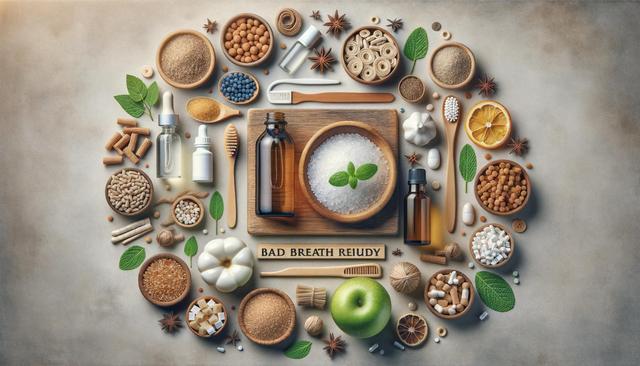Understanding What Causes Bad Breath In Adults
Bad breath, also known as halitosis, often stems from a variety of underlying causes. In adults, one of the most common sources is poor oral hygiene, which can lead to the buildup of bacteria on the tongue, gums, and teeth. These bacteria produce sulfur compounds that result in unpleasant odors. Other causes may include dry mouth, certain medications, smoking, and underlying medical conditions such as sinus infections or gastrointestinal issues.
Identifying the root cause is the first step in effectively managing bad breath. For example, if dry mouth is the issue, increasing water intake and stimulating saliva production may help. If the problem is related to a digestive concern, dietary adjustments or medical consultation might be necessary. Understanding what causes bad breath in adults allows for more targeted and sustainable remedies.
Natural Ways To Improve Breath Smell
There are several natural strategies that can be incorporated into a daily routine to help reduce or eliminate bad breath. These methods are simple, cost-effective, and generally free of side effects. Here are a few options that support fresher breath naturally:
- Hydrate frequently to maintain moisture in the mouth and encourage saliva production.
- Chew fresh herbs like parsley or mint, which contain chlorophyll that may help neutralize odors.
- Use a tongue scraper daily to remove food particles and bacteria from the tongue’s surface.
- Rinse your mouth with warm salt water to cleanse and reduce bacteria.
These natural ways to improve breath smell can be particularly helpful when used consistently. They are especially useful for individuals who want to avoid chemical-based products or have sensitivities to certain ingredients.
Home Remedies For Bad Breath
Home-based solutions can be a practical and accessible option for managing bad breath. Many of these remedies use ingredients commonly found in the kitchen. Here are some well-regarded home remedies for bad breath:
- Baking soda rinse: Mix a teaspoon of baking soda with water to neutralize acids and reduce odor-causing bacteria.
- Lemon juice: The acidity helps kill bacteria, and the fresh scent can mask bad odors temporarily.
- Apple cider vinegar: Diluted with water, it may help balance the pH levels in the mouth.
- Cloves: Chewing on a clove can release oils that help cleanse the mouth and freshen breath.
These home remedies for bad breath are often easy to prepare and can be used daily or as needed. They are especially useful for individuals looking for quick solutions without relying on commercial products.
How To Freshen Breath Without Mouthwash
Mouthwash is a common go-to for freshening breath, but not everyone prefers its use due to alcohol content or a preference for more natural options. Fortunately, there are effective ways to freshen breath without mouthwash. Here are some alternatives that can be incorporated into your routine:
- Snack on crunchy fruits and vegetables like apples and carrots, which help clean teeth and stimulate saliva.
- Brush your teeth and tongue after meals to remove food particles and reduce bacterial buildup.
- Drink green tea, which has natural antibacterial properties and a refreshing flavor.
- Inhale steam with a few drops of essential oils like peppermint or eucalyptus for temporary breath improvement.
Learning how to freshen breath without mouthwash not only supports oral hygiene but can promote a more natural and holistic approach to managing breath throughout the day.
Diet Tips To Prevent Bad Breath
Diet plays a significant role in the quality of one’s breath. Certain foods can lead to unpleasant odors, while others may help keep the mouth clean and reduce bacterial growth. Here are some diet tips to prevent bad breath:
- Avoid strong-smelling foods like onions, garlic, and heavily spiced meals before social interactions.
- Incorporate probiotic-rich foods such as yogurt to support digestive health, which can influence breath.
- Eat fibrous fruits and vegetables that naturally scrub the teeth and encourage saliva flow.
- Limit sugar intake, as it can feed bacteria and contribute to plaque buildup and odor.
These diet tips to prevent bad breath are not only beneficial for oral health, but they also support overall well-being. Maintaining a balanced and mindful diet can significantly reduce the occurrence of halitosis and encourage long-term freshness.
Conclusion: Simple Steps Toward Lasting Freshness
Addressing bad breath doesn’t have to be complicated or expensive. By understanding what causes bad breath in adults and applying natural and practical solutions, it’s possible to improve oral freshness effectively. Whether using home remedies for bad breath, adjusting dietary habits, or exploring how to freshen breath without mouthwash, the key lies in consistency and awareness. With these strategies, individuals can feel more confident in social settings and enjoy the benefits of better oral health naturally.




Leave a Reply